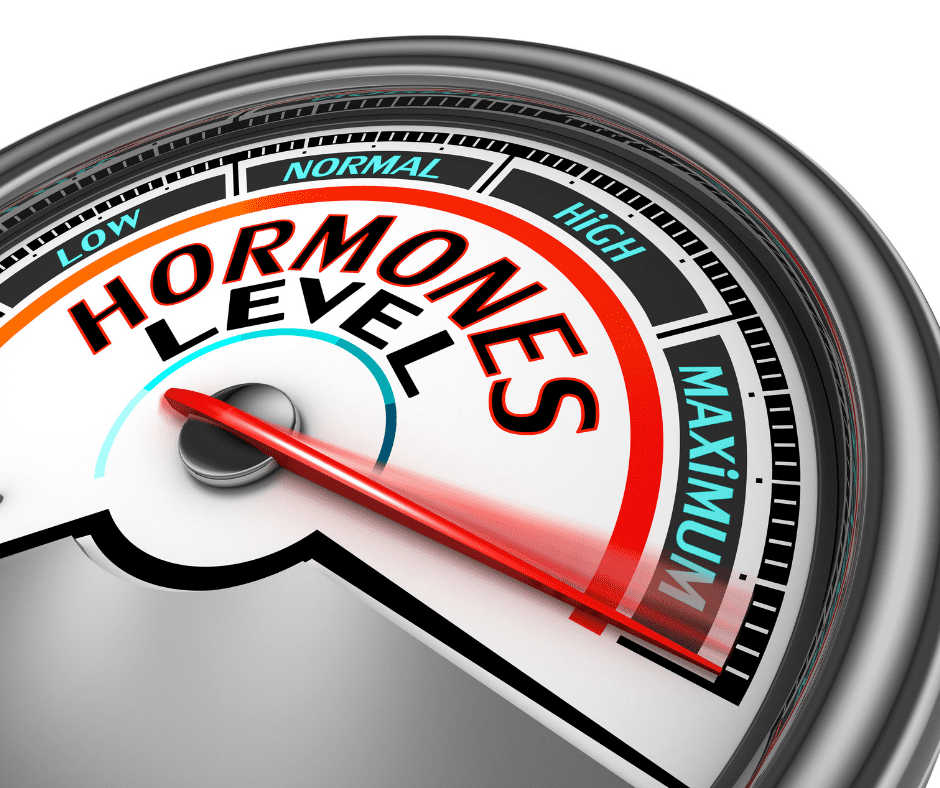Today, I want to help simplify the connection between hormones, weight gain and insulin resistance. And…of course, let you know what you can begin doing now to improve your health.
Did you know that there is a strong link between hormones and weight gain? It can make your weight loss very slow and frustrating – especially when you can’t find the delicate balance.
One of the most important hormones that impacts weight gain OR weight loss is insulin – so let’s start there. Insulin is made in your pancreas. Here is a simple example of how insulin normally functions. You decide to eat a piece of bread, which goes to your stomach and intestines for digestion. During the digestive process, the bread is broken down. More specifically, the carbohydrate in the bread gets broken down into individual glucose units since carbohydrates are made of individual glucose units.
These glucose units get absorbed into your bloodstream and make their way to the rest of your body. The cells in your body use glucose for your day-to-day energy.
This is where insulin comes in. As soon as glucose gets in your bloodstream, your pancreas releases insulin. Insulin then goes to your individual cells and acts as a key to unlock the gates which lets glucose into your cells to be used for energy. Of course, this is considered normal day-to-day functioning of insulin and glucose within your body.
However, sometimes the function of insulin and glucose becomes abnormal. We call this insulin resistance. As your day-to-day consumption of carbohydrates (or glucose) increases, more and more insulin is released from your pancreas. This leads to your insulin not working as well.
When this happens, insulin (which is the key that opens the gates for glucose to go into the cells) starts to become rusty. As a result, glucose can get inside the cells. Thus, you have a high amount of glucose in the bloodstream which leads to diabetes. And yet, the pancreas keeps making more insulin as it keeps sensing glucose in the bloodstream. This leads to excess insulin hanging around too. This excess insulin leads to fat storage, weight gain, and more hunger and cravings – a VERY vicious cycle!
So, how can you fix this issue and potentially reverse insulin resistance? First – Make some important dietary changes. This means not overeating foods that lead to insulin resistance. Eating too much sugar, too much fast food, and too many processed carbohydrates causes your insulin to go haywire. So, you must cut down on the bad carbohydrates like sugary beverages, baked goods, breads, rice, and the like. If you are carbohydrates, the majority should be in the form of whole foods (like vegetables which have fiber).
Second – Get an adequate amount of sleep. Adults need 7-9 hours of sleep at night. Why? Sleep deprivation leads to weight gain, headaches, high blood pressure, diabetes, depression, and poor immunity.
Third, reduce your stress. High levels of stress cause release of a hormone called cortisol. Too much cortisol leads to blood sugar imbalance, weight gain, heart problems, GI problems, and a poor immune system.
Fourth, Exercise at least 150 minutes per week of moderate intensity exercise helps balance blood sugars and lead to a long list of health benefits.
Fifth, try intermittent fasting. It’s not a diet, or about starving yourself, but rather, it is all about your eating pattern. How does intermittent fasting work to decrease insulin resistance? The answer is quite simple. As I said before, the more often you eat, the more often insulin is released in your body. The more insulin that is released, the more resistant your body becomes, and it starts to accumulate in your blood. High levels of insulin in the bloodstream leads to increased fat storage and weight gain. With intermittent fasting, you give your body a break during the fasting period, causing less insulin to be made.
The bottom line is that insulin resistance plays a KEY role in disease and weight. A diet high in sugar = high levels of insulin = insulin resistance. But the good news is that insulin resistance is absolutely reversible with the methods I shared with you today.
If you have questions, reach out to us. We are here for you.





